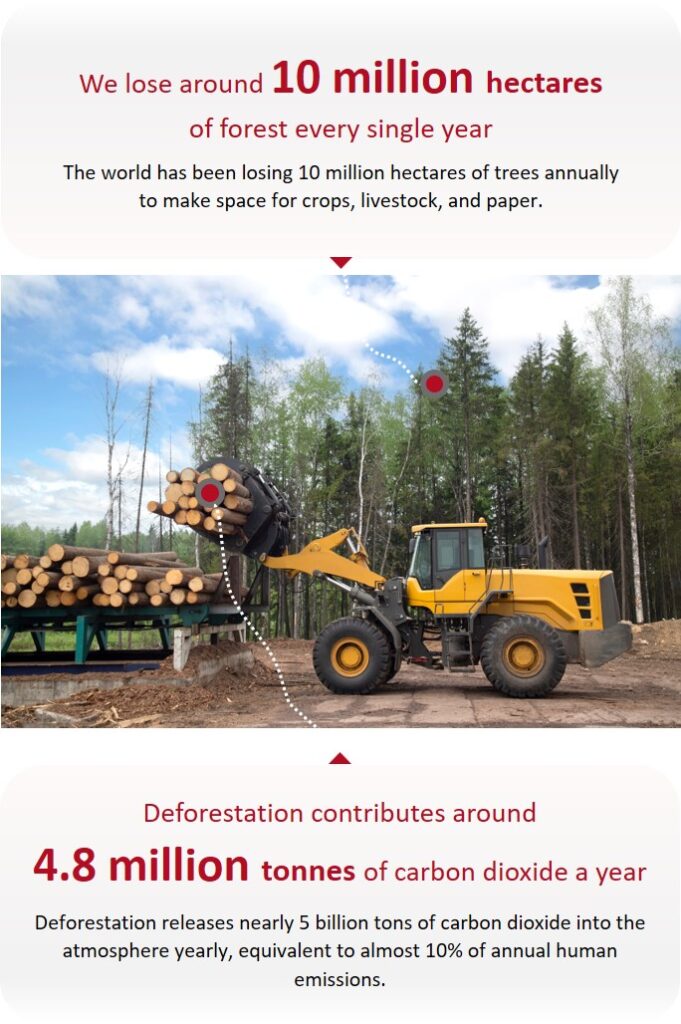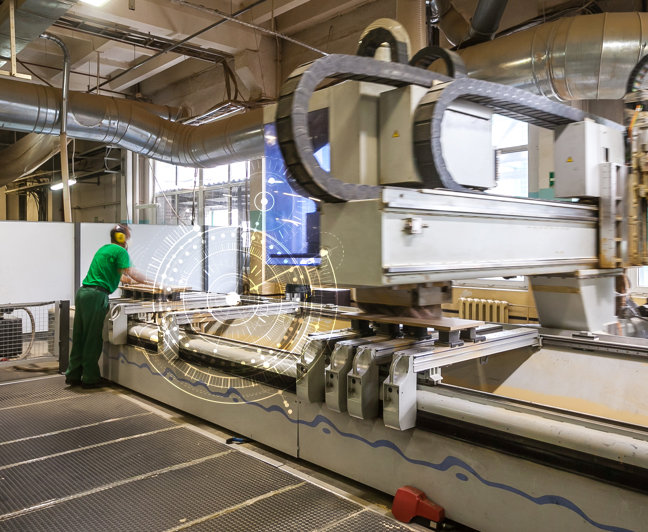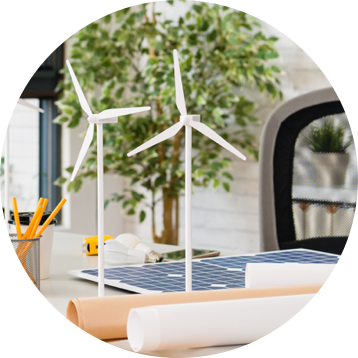
Since 1990, human activities such as land clearing for agricultural farming and logging have resulted in the loss of 420 million hectares of forest. Although deforestation has decreased over the past 30 years, we lose thousands of hectares of forest daily.
In the last decade, many countries have made efforts to decrease deforestation by implementing regulations that promote transparency in the supply chain. However, despite these efforts, deforestation and forest degradation are still happening at an alarming rate.
To combat this issue, the Regulation on Deforestation-Free Products (EUDR) has been introduced as an important milestone in the global fight against deforestation. The new Regulation (EU) 2023/1115 aims to reduce greenhouse gas emissions and biodiversity loss by promoting the consumption of ‘deforestation-free’ products and reducing the EU’s impact on global deforestation and forest degradation.
Furthermore, the business community increasingly demands transparent ESG (Environmental, Social, and Governance) disclosure. Companies must provide information about their environmental impact through sustainability reporting or ESG regulations.
Our vision for sustainability is focused on our dedication to assisting our clients in making their sustainability promises a reality.
We are convinced that sustainability is a vital component for the prosperity of any business, and we pledge to offer innovative solutions that support sustainable practices.
Our organization’s ethos is profoundly rooted in sustainability. We want to inspire our customers and the supply chain to take action by sharing in-field knowledge and industry expertise and offering practical solutions to help deliver real progress.
As a household goods specialist with a deep knowledge of the manufacturing processes, we have developed a range of sustainability services. Our on-the-ground expertise allows us to help brands, retailers, importers and manufacturers meet their sustainability goals efficiently with a tailor-made approach adapted to their requirements.

Identify and develop the different opportunities to improve the environmental performance of your products through its lifecycle stages.


An environmental claim, also called a green claim, is an assertion made by brands, retailers and suppliers about the environmental qualities or characteristics of their goods or processes.


Gain sustainability knowledge with on-site or classroom training & reading resources.
Why is being sustainable important?
The adoption of sustainable methods yields numerous advantages, with the four primary reasons to embrace sustainability being:
Government, communities and NGOs are joining forces to ensure sustainable industry practices. As a result, strict local and global regulations are increasingly being enforced, and a growing number of awareness campaigns are being developed. Being a proactive player in environmental compliance will help your company stay ahead of the competition and will facilitate a path forward to comply with future regulations.
The optimization and surveillance of your manufacturing processes will result in lower energy, water and material consumption with a consequent cost reduction. This, together with the improvement of your employees work conditions will have a positive impact on your performance and help to increase your facility’s overall productivity.
Consumer preferences are changing towards an increasing demand of socially sustainable products with lower environmental footprints and environmentally-friendly brands. Reinforce your brand image and set yourself apart from your competitors by adopting a sustainable business model and bringing green products to market.
The household goods industry has a strong environmental impact including air pollution, greenhouse gas emissions, climate change acceleration, waterway contamination and much more. Adopting measures to reduce this will not only have a good impact on the planet, but will also help your brand cultivate a more positive image in the eyes of consumers.
In the current era of social media, the reputation of a brand is more fragile than ever. Customers are prompt in voicing out their views, and adverse publicity can disseminate swiftly. Sustainable practices can help brands build an authentic image, fostering loyalty and attracting customers who value the company’s positive impact.
Our specialization and expertise in the field allows us to bring solutions adapted to your manufacturing challenges.
CSR + Sustainability + Technical departments working closely together. Combining knowledge and expertise to provide CAP to factories.
Thanks to our teams being on the ground at the factories in real time, API’s household goods specialists are uniquely positioned to understand the manufacturing process and its challenges. This allows us to provide bespoke sustainability services to address issues at each and every one of the manufacturing stages to help our customers achieve their sustainability goals.


Understand the root causes of issues identified on-site

Want to know more about one of our many services? Contact us to find out more information about what API can do for your company today.
Address
Copyright © 1981 – 2022 API. All Rights Reserved.